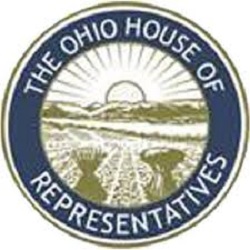Bill creates a civil right of action for victim and requires bias training for caller
COLUMBUS- State Reps. Thomas West (D-Canton) and Casey Weinstein (D-Hudson) today announced new legislation dealing with false and racially motivated 911 emergency calls during a virtual press conference.
The lawmakers were joined by Mr. Darren Cooper, a constituent of Rep. Weinstein’s and a resident of Hudson, who was the target of such a call in an incident that resulted in police unnecessarily arriving on the scene. At the time a woman in a parking lot across the street made the call, Mr. Cooper was sitting in his parked car talking on the phone. The woman claimed that Mr. Cooper was holding a gun and raising it repeatedly, according to officers, but Mr. Cooper explained that he was holding his iPhone while talking on speaker phone.
“We have seen this happen far too many times to Black Ohioans and Black Americans who are just trying to go about their daily lives,” said Rep. West. “Folks who look like me and like Mr. Cooper should not have to live in fear of the police being called on them just for talking on the phone, loading groceries into their car, and going on a run in their neighborhood. We must create accountability measures to deter passerby from making these calls, and my colleague and I believe this bill would do that.”
“My Hudson neighbor, Mr. Cooper, should have the freedom to do his job and live his life without fear of being harassed or racially profiled,” said Rep. Weinstein. “It is critical that we bring awareness to this issue that affects Black Ohioans throughout this state, and that we leverage the power of education to put an end to dangerous, non-emergency uses of 9-1-1 calls.”
Under the bill, the call victim would have the opportunity to sue the caller in civil court for damages. If the court found in favor of the victim, the court would also require the caller to complete an implicit bias training program. The language of the bill allows the court to determine an appropriate local program. After completing the program, the individual would submit written proof of completion to the court.
Following the press conference, the lawmakers plan to introduce the bill soon.























